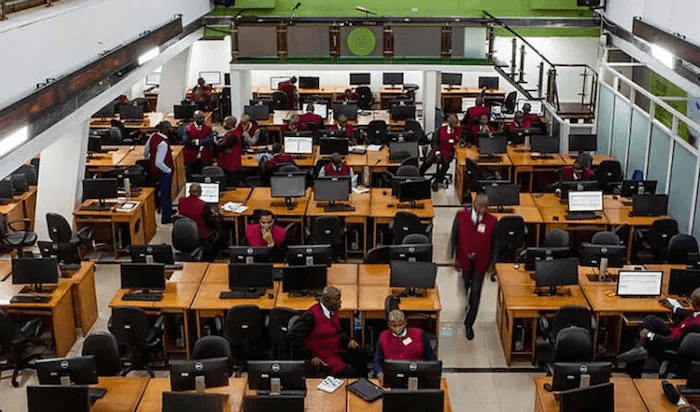BETWEEN RHETORIC AND REALITY
BETWEEN RHETORIC AND REALITY
Tinubu’s economy boasts ring hollow amidst bloodshed, argues KALU OKORONKWO
On Nigeria’s 65th Independence anniversary, President Bola Tinubu delivered a familiar scorecard of economic “victories” growth figures, fiscal reforms, and selective statistics packaged as progress. Yet for millions of Nigerians who bury loved ones lost to bandits, kidnappers, and robbers, these numbers ring hollow. What good is economic growth when the roads to work, school, and home have become corridors of death?
The dissonance between celebratory economic rhetoric and the daily reality of violent insecurity is not an accidental oversight, it has become the Tinubu-led administration’s defining failure. The claim of economic high points during the 65th independence anniversary speech while treating security as a secondary operational problem rather than the foundational political economy issue that it is, leaves much to be desired.
The government’s self-praise of economic revival sounds muffled in a country where the value of life continues to plummet faster than the naira. “Under our leadership, our economy is recovering fast, and the reforms we started over two years ago are delivering tangible results. The second quarter 2025 Gross Domestic Product grew by 4.23%, Nigeria’s fastest pace in four years and outpaced the 3.4 per cent projected by the International Monetary Fund. Inflation declined to 20.12% in August 2025, the lowest level in three years. The administration is working diligently to boost agricultural production and ensure food security, reducing food costs” the President said.
When open markets for food items and other essentials cannot operate safely, the informal economy on which most Nigerians depend suffers. When roads are unsafe, supply chains fail and food inflation escalates, neutralizing the value of GDP growth.
The alarming frequency of kidnappings, armed robberies, and ethnic violence paints a picture of a country at war as citizens live in fear.
The tragedy that befell Peace Onyeka, a young law graduate freshly called to the Nigerian Bar, and her sister Gift Onyeka illustrates this national nightmare. The sisters were kidnapped along the Okene–Auchi road while returning from Abuja after the Call to the Bar ceremony on Friday September 26, 2025. This euphoria of the occasion was still very much in the air as the young lawyer took a journey back to her base in Edo State to celebrate with her family and friends.
Instead, her life and that of her sister were thrown into the morbid uncertainty of captivity with their family left to plead and pray for mercy. They were eventually released near Okpella in Edo State, but their trauma in the hands of their abductor is better imagined.
Equally tragic was the gruesome death of Somtochukwu (Sommie) Maduagwu, a bright young Arise TV anchor and lawyer, who lost her life on September 29, 2025 during a brazen armed robbery attack in Abuja. Her story, heartbreaking and senseless, exposes how insecurity has metastasized, reaching even into the Federal Capital Territory, once considered the safest part of the country. In the same city where the government flaunts macroeconomic gains, its citizens die fleeing criminals who roam unchecked.
These incidents are not isolated. They represent the daily reality of millions who travel in fear from sun rise to sun set.
The Tinubu administration’s focus on economic optics, while the nation bleeds, is a tragic misplacement of priorities. Economic reforms, no matter how ambitious, cannot take root in an atmosphere of fear and lawlessness.
No foreign investor will pour capital into an economy where movement is perilous, logistics are unsafe, and insurance companies balk at underwriting risks.
Security is not just a social issue; it is an economic pillar. Every killing, kidnapping, and act of banditry is a blow to productivity and national morale. The informal economy, the backbone of Nigeria’s workforce thrives on mobility and stability.
Traders cannot move goods across states if roads are ambushed by criminals. Farmers cannot tend their fields if bandits rule rural communities. Professionals, like Somtochukwu and Peace, cannot fulfill their dreams if the highways to opportunity have become highways to hell.
Globally, history teaches that no economy thrives amidst chaos. In Colombia, for instance, the government’s decisive push to reclaim its territories from armed militias in the early 2000s paved the way for economic resurgence and foreign investment. In Rwanda, post genocide security stability became the foundation for an impressive developmental turnaround. Singapore, once plagued by crime and instability, achieved its economic miracle only after instituting strict security and governance reforms. The lesson is simple but profound; security is the bedrock of economic transformation.
The failure of President Tinubu to tell Nigerians how he plans to curtail the hydra headed insecurity challenge facing the country during his Independence Day broadcast appears to be celebrating mediocrity and heralding transient fiscal adjustments as recovery while citizens count their dead and kidnapped victims.
There is a cruel irony in boasting about GDP growth or exchange rate gains when the average Nigerian is more likely to encounter bandits than benefit from any “economic rebound.” A nation that cannot protect its people has no moral authority to claim progress. It is time for the government to confront the truth: Nigeria’s economy is bleeding because its people are bleeding. This administration must stop treating insecurity as a political inconvenience and recognise it as the core of national survival.
The government should move from the point of reactive actions whereby at any turn of fatalities, it hurriedly boasts of ensuring perpetrators of the crimes will be apprehended and made to face the weight of the law.
This the administration could do by adopting and resourcing intelligence led policing nationwide and funding a national ILP architecture with fusion centres, interoperable databases, forensic labs and embedded analysts at federal, state and local levels. This will ensure that policy frameworks are developed by data, not guesswork.
The government can also protect highways by setting up chokepoints with combined military and police operations. The Okene–Auchi corridor, a hot bed for kidnapping and banditry attacks and similar routes must be made high security zones with regular patrols and intelligence gathering, rapid response units and publicized safe times/routes for movement. This will ensure that transport links which are the arteries of the national economy are safe for commuters.
Government must also tackle corruption and accountability within security agencies. Weapons diversion, leaked intelligence as payoffs to criminal groups thrive when systems lack transparency. Independent oversight, forensics, and prosecutions for negligence and collusion would send an immediate, deterrent signal. Also the judiciary must deliver swift justice to deter crime. Most importantly, leadership must embody empathy not in words, but in decisive, measurable action.
No country fixed violence overnight, but some turned the corner by combining force with governance reform and community engagement. For instance, Colombia’s early 2000s strategy under President Álvaro Uribe, for better or worse, though controversial, strengthened state presence in contested zones and combined military pressure with state rebuilding efforts.
Other success stories are more modest and replicable including community rooted anti-gang operations in Liverpool that used a “clear, hold, build” strategy and restored public confidence after high profile killings, showing how coordinated policing and local rebuilding work together. These are not blueprints to copy wholesale, they are lessons in sequencing: secure, then rebuild.
Why economic indicators matter, they cannot paper over mortuaries full of citizens who died on roads the state failed to secure. They cannot console families whose children never came home from university or from a Call to the Bar celebration.
For governance to be credible, Nigerians must feel protected in their homes, on their commutes, and in their towns. Otherwise growth figures remain abstractions and anniversaries become hollow rituals.
If this administration truly values the “security of lives and property,” it must stop treating insecurity as a side note and start treating it as a national emergency. The government should allocate resources, enthrone reforms, act on actionable intelligence and protect the very people whose votes and sweat underpin every economic statistic.
President Tinubu must rise above rhetoric. The Nigerian people do not need more speeches about economic renewal; they need a renewal of safety, trust, and hope. The memory of Peace Onyeka and Somtochukwu Maduagwu, two young Nigerians whose sad stories still lingers resulting from the failures of the state must become a moral mirror for this government.
At 65, Nigeria cannot afford to keep celebrating statistics while burying its citizens in hundreds every month. Independence will only come when every Nigerian can travel, trade, and thrive without fear. Until then, every boast about economic recovery will remain what it is: an echo of progress in a country still drowning in blood and broken promises.
Okoronkwo is a communications strategist, a leadership and good governance advocate. kalu.okoronkwo@gmail.com
Tinubu’s economy boasts ring hollow amidst bloodshed, argues KALU OKORONKWO On Nigeria’s 65th Independence anniversary, President Bola Tinubu delivered a familiar scorecard of economic “victories” growth figures, fiscal reforms, and selective



